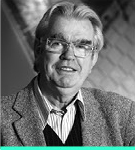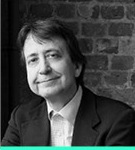Who We Are

Ed Vaizey MP
Ed is currently the Minister for Culture, Communications and Creative Industries in the Department for Culture, Media and Sport (DCMS). He was elected Conservative Member of Parliament for the constituency of Wantage in 2005, and was re-elected in 2010 with an increased majority.
Born in 1968, Ed attended Merton College, Oxford. When he left university, he spent two years working for the Conservative Party’s Research Department, before training and practising as a barrister. In 1996, he left the law, and became the director of a highly successful public relations company based in London. In 2004, he left to become the chief speech writer for the then Leader of the Opposition, Michael Howard.
Ed also built up a career as a freelance political commentator, writing regularly for The Guardian, and appearing on programmes such as Despatch Box and The Wright Stuff, as well as broadcasting frequently on Five Live. Ed’s other interests have included being a board member of the Bush Theatre in West London; a trustee of the Heritage of London Trust; and a trustee of the National Churches Trust. In October 2010 Ed Vaizey was awarded an RIBA Honorary Fellowship in recognition of his contribution to architecture.

Sir Terry Farrell
Sir Terry Farrell CBE is considered to be the UK’s leading architect planner, with offices in London, Hong Kong and Shanghai. Throughout his career, he has championed urban planning and helped shape government policy on key issues. This engagement is across the political spectrum having worked on citymaking and public affairs with all the leading parties: Conservative, Labour, Liberal Democrat, and Scottish National Party, and across the scale range from towns like Ashford, cities like Edinburgh and Newcastle/Gateshead, metropolises like London, and regions for the Government such as Thames Gateway. Furthermore, his outlook and experience are built on many years of consensus building from wide ranging viewpoints.
During 40 years in practice he has completed many award-winning buildings including Embankment Place and The Home Office Headquarters as well as millennium projects such as The Deep in Hull and Centre for Life in Newcastle and masterplans including Greenwich Peninsula, Paddington Basin, Newcastle Quayside and Brindleyplace. In East Asia, notable projects include Incheon airport in Seoul, Beijing Station and Guangzhou High Speed Station in China (the largest in the world) and high rise KK100 (the tallest building by a UK architect).
He was invited by the Architecture Minister, Ed Vaizey MP, to lead a new, independent Review of Architecture and the Built Environment. He has been the Mayor of London’s Design Advisor and advises the Department for Transport on high speed rail. He is Design Champion for the Thames Gateway, Europe’s largest regeneration project, where he worked for the past decade. As recognition of this, in 2013 he was voted the individual who made the Greatest Contribution to London’s Planning and Development over the last 10 years, awarded by the Mayor of London, Boris Johnson.
The Panel

Peter Bishop
Peter is Professor of Urban Design at The Bartlett School of Architecture, University College, London. He trained in town planning at Manchester University and has spent most of his career working in London. Over the past 25 years he has been a planning director in four different Central London Boroughs and has worked on major projects including Canary Wharf, the development of the BBC’s campus at White City and the Kings Cross developments, one of the largest and most complex sites in London. He was appointed as the first Director of Design for London, the Mayor’s architecture and design studio, in 2006. In 2008 he was appointed the Deputy Chief Executive at the London Development Agency. In 2011 Peter took up a directorship at Allies and Morrison - Urban Practitioners architects and also works as a consultant for Berwin Leighton Paisner.
In 2011 he carried out a review of national architecture and design policy, The Bishop Review on behalf of the Government and the Design Council. Peter lectures and teaches extensively, is a visiting professor at the faculty of Architecture and the Built Environment at the Nottingham Trent University, and an honorary fellow of University College London, and an honorary fellow of the RIBA.
His book, “The Temporary City” has recently been published by Oxford, Routledge.

Alison Brooks
Canadian born and educated at the University of Waterloo, Alison Brooks moved to the UK in 1989 to form a seven year partnership at Ron Arad Associates. In 1996 she founded Alison Brooks Architects Ltd with early award-winning work including the Atoll Design Hotel in Helgoland, Germany and the VXO House, Hampstead. She has since built a portfolio of work recognised for its conceptual consistency, formal experimentation and rigorous attention to detail. The practice has grown to 16 staff, three directors and two associates leading projects from ABA’s north London studios.
Alison Brooks Architects is the first British architectural practice to have won the UK’s three most prestigious awards for architecture - the Stirling Prize for Accordia Cambridge, the Manser Medal for Salt House and the Stephen Lawrence Prize for Wrap House. In March 2013 Alison Brooks was honoured by being named AJ Woman Architect of the Year. In 2012 Alison Brooks/ABA won both the AYA Housing Architect of the Year and Architect of the Year Gold Award. Alison Brooks’ belief in the transformative social role of architecture underlies a commitment to housing design; ABA is now delivering large scale residential and regeneration projects across the UK.
With an expanding portfolio of higher education and arts buildings, ABA is designing Exeter College’s new Quad at Oxford University, which will be the first Oxford College to be designed by a female architect. ABA’s Folkestone Quarterhouse Performing Arts Centre was longlisted for the 2010 Stirling Prize and received the Kent Design Award for Best Public Building. Alison Brooks Architects’ completed buildings have twice featured in the Phaidon Atlas of Contemporary World Architecture.
Alison Brooks is a CABE National Design Review Panel member, serves on the RIBA Awards Group and was on the 2011 Stirling Prize Jury. She was an AA Diploma Unit Master from 2008-2010 and is currently External Examiner at the Bartlett UCL. The practice’s urban research projects include the 2010 Audi Urban Future Award; ABA’s City of Collaborative Mobility was exhibited at the VIth Venice Architecture Biennale and the New York Festival of Ideas for the New City. Alison Brooks lectures internationally on architecture and urbanism.

Alain de Botton
Alain de Botton is an author and the founder of Living Architecture - an organisation that asks some of the world's best architects to construct buildings of extraordinary beauty and interest around the UK, which can then be rented out for holidays by members of the public. So far, de Botton has commissioned and worked with Peter Zumthor, MVRDV, Sir Michael Hopkins, JVA and Nord. There will be future houses by John Pawson, Grayson Perry and FAT architects and David Chipperfield. De Botton was made an honorary fellow of the RIBA, in recognition of his services to architecture both through Living Architecture and his book, The Architecture of Happiness, which looked at the question of beauty in architecture - and which was a critical and commercial success, selling a million copies worldwide.

Hank Dittmar
Hank Dittmar is Special Advisor to The Prince's Foundation having been its Chief Executive from 2005-2013. Until 2008, Hank was Chairman of the Board of Directors of the Congress for the New Urbanism and also served as Executive Director of the Surface Transportation Policy Project.
Hank has over twenty years of international experience in urban design and development and urban and transport policy. Prior to assuming the post with The Prince's Foundation, Hank was President and CEO of Reconnecting America. Hank was appointed by President Clinton to the White House Advisory Committee on Transportation and Greenhouse Gas Emissions and the President's Council on Sustainable Development's Metropolitan Working Group, which he served as Chair.
He's a Senior Research Associate at the Oxford University Centre for the Environment and was outstanding Alumnus of the Graduate School of the University of Texas in 2008. In 2008 he wrote the book "Transport and Neighbourhoods."

Jim Eyre
Jim Eyre OBE BA Hons AA Dip RIBA FRSA of Wilkinson Eyre Architects studied architecture at the Liverpool University School of Architecture and at the Architectural Association graduating in 1983. Jim has worked with Chris Wilkinson since 1986, forming a partnership in 1987. In his long experience in architectural practice, he has enjoyed involvement in a diverse range of project types at all stages of the design and construction process. His roles include key conceptual design on projects ranging from Gateshead Millennium Bridge to Gardens by the Bay in Singapore to the New Bodleian Library for Special Collections. He has a particular interest in multi-disciplinary projects where architectural creativity and engineering principles can be combined.
Architecturally, Jim’s approach continues to evolve with his interest in the spirit of the new, and the relationship of architectural design to both urban and historical contexts and the wider physical landscape. For him, well crafted design with an economy of means serves to exploit the experiential qualities of space, light and form.
Jim was awarded an OBE for services to architecture in the Queen’s Birthday Honours List in 2003. He was awarded 2004 the Royal Academy of Engineering President’s Medal; and an honorary doctorate from Liverpool University in 2009. He holds, or has held, several academic posts including Visiting Professor at Liverpool University School of Architecture (2010-2013); Visiting Tutor at the Illinois Institute of Technology in Chicago; Visiting Professor at the Harvard Graduate School of Design; and is a former President of the Architectural Association having been a council member since 2003 and. He has been a juror for a number of high-profile design competitions and awards in the UK and overseas. He is currently a member of the 1851 Commission’s Built Environment Awards Committee and the RIBA awards Group. Jim has been a member of the Commission for Architecture and the Built Environment’s Design Review Panel since 2006, chairing design reviews from 2007 on a wide variety of projects and is now a trustee of Design Council CABE.

Thomas Heatherwick
Thomas Heatherwick CBE establised Heatherwick Studio in 1994. Recognized for its work in architecture, urban infrastructure, sculpture, design and strategic thinking the team of 90 architects, designers and makers, work from a combined studio and workshop in Kings Cross, London. At the heart of the studio’s work is a profound commitment to finding innovative design solutions, with a dedication to artistic thinking and the latent potential of materials and craftsmanship. This is achieved through a working methodology of collaborative rational inquiry, undertaken in a spirit of curiosity and experimentation.
In the eighteen years of its existence, Heatherwick Studio has worked in many countries, with a wide range of commissioners and in a variety of regulatory environments. Through this experience, the studio has acquired a high level of expertise in the design and realisation of unusual projects, with a particular focus on the large scale. The studio’s work includes a number of nationally significant projects for the UK, including the award-winning UK Pavilion at the Shanghai World Expo 2010, the Olympic Cauldron for the London 2012 Olympic Games, and the New Bus for London.
Thomas is an Honorary Fellow of the Royal Institute of British Architects; a Senior Research Fellow at the Victoria & Albert Museum; and has been awarded Honorary Doctorates from the Royal College of Art, University of Dundee, University of Brighton, Sheffield Hallam University and University of Manchester. He has won the Prince Philip Designers Prize, and, in 2004, was the youngest practitioner to be appointed a Royal Designer for Industry. In 2010, Thomas was awarded the RIBA’s Lubetkin Prize and the London Design Medal in recognition of his outstanding contribution to design.

Lucy Musgrave
Lucy Musgrave is a leading practitioner in the fields of urbanism and the public realm. She is the Director of Publica, a company that provide specialist advice on the social, cultural and spatial integration of new development and how to establish long-term vision within urban regeneration proposals. Clients include the Crown Estate, the City of London, the City of Westminster and many of the UK's leading developers.
Over a career spanning more than 20 years, Lucy has played a key advisory role in policy recommendations, strategic planning and urban design frameworks, and in the advocacy of design quality. She is regularly asked to speak both in the UK and internationally on what makes successful and sustainable cities and neighbourhoods, most recently presenting to delegates at the 4th Holcim Sustainability Conference in Mumbai and delivering evidence to London's West End Commission. Lucy was previously Director of the pioneering cultural organisation the Architecture Foundation, where over an eight year period she developed programmes of action research in the field of social inclusion and the built environment to promote ideas of design, architecture and regeneration to a wide range of public, professional and political audiences. In 1996, she was responsible for staging a series of influential ‘public forums’ on the future of London that attracted over 15,000 people, affected government policy and resulted in the World Square for All initiative for Trafalgar Square.
Lucy is a current member of the RIBA Awards Group; the Newham and Islington Design Review Panels; a New London Architecture Expert Assessor and a recent juror of the Architect of the Year Awards and Holcim Sustainability Awards. She was made an honorary fellow of the Royal Institute of British Architects in 2001. Amongst many previous advisory and board roles, she has been a member of the UK government’s Urban Sounding Board; the Greater London Authority’s Public Realm Advisory Group; the Mies van der Rohe European Prize for Public Space; the Young Architect of the Year Awards; a trustee of The Photographers’ Gallery, London and an external examiner at the Department of Architecture & Spatial Design, London Metropolitan University. Lucy is a also a founding trustee of the Sheila McKechnie Foundation, a charity set up to support the next generation of campaigners. She is co-author of the Thames & Hudson publication on international examples of inspirational regeneration practice: “Design & Landscape for People: New Approaches to Renewal”.

Robert Powell
Robert Powell is Creative Director and CEO of Beam, a leading arts, architecture, and education company and charity based at the Grade II* listed Orangery, Wakefield, and delivering programmes in education, design training, community engagement and skills, and arts in the public realm.
Robert has had over thirty years of professional involvement in the arts, regeneration, culture and the media in England, Scotland, and Canada, as journalist, curator, gallery director, and consultant. As Director of Beam (formerly Public Arts) since 1997 he has been closely engaged with contemporary practices and issues in design and the built environment, public realm procurement, culture and regeneration, and community engagement. He developed the regional ‘People Making Places’ programme (2002-10) with funding from CABE, Arts Council England, and Yorkshire Forward; led Beam’s Local Authority Design Training programme in Wakefield, Barnsley, Bradford, and York; and conceived and oversaw delivery of Yorkshire Forward’s Partnership Skills Programme for ‘Renaissance’ town teams in over 20 towns throughout Yorkshire and Humber (2004-9.)
He has led and managed a range of public art projects and strategies, including Welcome to the North: A Public Art Strategy for the Northern Way (2006); and The Arts of Place, Beam’s innovative approach to major urban development combining the arts, learning, and public engagement. Robert conceived and directed creative arts-led models for public design awareness and consultation, including Incline (2002), The Green (2003), and People Changing Places (2008-10).
He was a trustee and sometime Chair of the UK Architecture Centre Network (2006-12). He is Chair of Wakefield’s Design Review Panel, managed by Beam; was a member of Barnsley Building Schools for the Future Design Panel (2006-8) and Design Review Panel (2009-); and is a member of the Yorkshire Regional Design Review Panel. He is a published poet and writer.

Sunand Prasad
Since founding Penoyre & Prasad in 1988 with Greg Penoyre, Sunand has played a central role in the design and delivery of the practice’s 300 plus projects, guiding the design philosophy of the practice and the design development of projects. The practice's work has won over 80 awards and been widely published.
Sunand was President of the Royal Institute of British Architects from 2007 to 2009 and a Founding Commissioner of CABE. He is a member of the Government's Green Construction Board, a trustee of the think tank the Centre for Cities and of the arts and climate change charity Cape Farewell.
Sunand's research and writings have included the value of design, sustainability, cultural diversity, the construction industry and professions, smart cities, Le Corbusier, North Indian domestic architecture and urbanism, and hospital design.

Victoria Thornton
Victoria Thornton OBE has been involved in the field of architecture for many years, working with a wide range of public bodies, community groups and professionals, to explore issues related to London’s existing and future architecture.
Victoria is Founding Director of Open-City formerly Open House, celebrating its 21st anniversary this year as one of the leading architecture organisations in championing the value of well designed places and spaces in making a liveable and vibrant city, and the role everyone plays within it. The organisation’s work is divided into three specific strands – Education, Advocacy and Public Engagement.
A number of major education/skills initiatives created and directed by Victoria are currently under way or recently completed, alongside a number of other well-established programmes: Architecture in Schools; Accelerate into University! My Green School Resource; My City Too!; Opening Up Architecture; Learning by Design; Summer Architecture Academy; and the Engaging Places Portal.
As well as director and curator of many high-profile exhibitions/initiatives, Victoria established the RIBA Architecture Centre (1994-98); and was Architecture Consultant to the British Council VAD (1998-2000); architectural advisor to the Scottish Arts Council (2000) and judge for the RIBA Awards (2003), Board Member of Irish Architecture Foundation (2005 – present) and Architecture Centre Network (2006 – 2012), Board Member Architecture and Built Environment Centres Network 2013 -), Women in Architecture Judge (2012 & 2013), Founder, Open House WorldWide (2010- present) along with the Department of Culture Media and Sport’s Engaging Places Advisory Panel (2007).
In 2012 Victoria received the Order of the British Empire for her work and contribution to architecture. Further in 2003 RIBA awarded an Honorary Fellowship to Victoria in recognition of her contribution to architecture and the education of future generations and in 2005 she was awarded an honorary MA degree for architecture education by London Metropolitan University. She is also a fellow of the RSA and completed an MA relating to European architecture policy and young people (2009).
The Team

Neil Bennett
Having joined Farrells 25 years ago, Neil is lead partner at the architect/planning practice for strategic architecture and urban design projects. As an architect – planner, he has a wealth of experience in the creative and enabling aspects of place-shaping and built environment projects, and is currently advising both public and private sector clients on the development impact of some of UK’s major planned infrastructure investments.
Neil’s experience spans all stages of the creation of our built environment, from thought leadership, through the appreciation and creative re-use of historic buildings, to the issues involved in constructing our building stock.
Recent work with Farrells includes the Thames Gateway, the campaign for ‘urban greening’, and holistic sustainable planning of the UK’s transport infrastructure.

Max Farrell
Max Farrell, Partner, is leading the review at Farrells. Max has a background in public affairs and public relations. He has an MA in Urban and Regional Planning from the University of Westminster and is a member of the Academy of Urbanism. At Farrells his role includes liaison with local and national government on high speed rail and aviation strategy as well as proposals for a new transport ‘super hub’ at Old Oak Common where HS2 meets Crossrail in West London.
Max was previously head of the Community and Regeneration sector at Electoral Reform Services, the UKs leading electoral services company, where he devised and led public engagement programmes for ballots and referendums throughout the country. Prior to joining Farrells in 2010 he was a public affairs consultant at Pall Mall Consult where he engaged with local and national government on behalf of private and voluntary sector organisations on high profile projects including eco towns.

Charlie Peel
Charlie is coordinating the Review from Farrells. He is a researcher, designer and built environment consultant with a background in urban studies, green architecture, and social science. Charlie has an MSc in City Design and Social Science from the London School of Economics’ Cities Programme. He also holds an MA in Architectural History from the University of Edinburgh. Charlie has a personal interest in linking broader policy and strategy with a ground-up approach to buildings and cities.
His work with Building Futures, the RIBA’s think tank, involved leading the delivery of a major publication, Facing Up to Rising Sea Levels. Charlie authored and managed the ten-month research project on coastal cities from start to finish; the result prompted significant debate and public interest as well as consultation with the Environment Agency. He also created the RIBA’s Sustainability Hub: a central, online and free resource on sustainability and architecture.
He co-founded and runs BikeBox, an east London-based social enterprise established to create job opportunities for young people and provide a carbon-zero food delivery network. From time to time Charlie undertakes voluntary building projects with VoluntaryDesign&Build. He is a recent member of the RIBA’s Sustainable Futures Group.

Elise Baudon
Elise is a researcher for the Farrell Review. Prior to joining Harvard’s Graduate School of Design, Elise gained experience investigating the role of policy frameworks, stakeholder relationships, and local economies for both city and regional scale architectural projects in France and in the UK. She also holds a BSc in Environmental Biology from University College London (UCL), and participated in a one year programme at Columbia Graduate School of Architecture, Planning and Preservation.
As a former biologist, Elise has pursued her interest in natural systems and disaster mitigation in the developed world and emerging economies since entering an Urban Planning program. She aspires to resolve complex ecological issues inherent to urban environments by combining innovative policies, economic strategies and design thinking in an international framework.
Most recently, she co-organised a panel discussion on the economic and social cost of recovery in the aftermath of Hurricane Sandy in NYC, "Funding Sandy Recovery: How It Works, Accountability, and Social (In)Justice", for the 2013 edition of the Planners Network Conference.

Andres Torres
Andres is a researcher for the Farrell Review. He recently completed a thesis on the politics of public space, while at the London School of Economics' Cities Programme. Before relocating to London, he spent several years working in government and non-profit sectors, including a period managing special projects for the Chicago Department of Cultural Affairs and directing external relations for the Chicago Office of Tourism and Culture.
Through his work, Andres has developed a strong interest in the intersection of social and cultural policy and the potential role of public-private partnerships in advancing both. He holds a BA in Humanities, with a focus on architecture and urban studies, from Yale University. He studied the politics of architecture and was awarded research fellowships for investigations in Spain and Berlin.
He was also actively involved as a Board Member of several non-profit arts organisations, including Landmarks Illinois, the state’s historical preservation group.

Michael Riebel
Michael is a researcher for the Farrell Review with a background in architecture and art history. He worked in Germany, Mexico, Switzerland, Qatar and then fell in love with London, where he has lived with his family for 7 years. He holds an MA in Art History (University of Hamburg) and a Diploma in Architecture (TU – Berlin).
Prior to joining the Farrell Review he gained extensive experience in all fields of architecture. Next to developing projects with his own Hackney-based design studio, he worked for renowned practices such as Daniel Libeskind, FCBStudios and John McAslan. The projects he was involved in spanned over all levels of scale from interior design to large scale regeneration projects like Broadcasting Place in Leeds or City Road in London.
Michael was always interested in how the perception of urban form influences social and political structures and how these mechanisms provide opportunities for architectural interventions. He just finished an MSc at the London School of Economics in and City Design and Social Science with extensive field work of how residents perceive and use their public realm in an east London council estate.
Acknowledgements
Our extended thanks to all those whose voices and input have shaped this Review. Together we are all a part of ensuring its legacy and making the needed change happen.
The Minister
- Ed Vaizey MP
Led by
- Sir Terry Farrell CBE with:
- Max Farrell, Project Leader
- Charlie Peel, Project Co-ordinator
The Panel
- Peter Bishop
- Alison Brooks
- Alain de Botton
- Hank Dittmar
- Jim Eyre OBE
- Thomas Heatherwick
- Nigel Hugill
- Lucy Musgrave
- Robert Powell
- Sunand Prasad
- Victoria Thornton OBE
Farrells
- Neil Bennett
- Rebecca Holmes
- Laura Berman
- Andres Torres
- Elise Baudon
- Michael Riebel
DCMS
- Helen Williams
- Peter Karpinski
- John Tallantyre
Editorial Assistance
- Abigail Grater
- Sutherland Lyall
Image credits
- Eugene Dreyer, ystudio (illustrations)
- Louis Hellman (cartoons)
- Laura Berman (photos)
With support from
- Academy for Urbanism
- Alan Baxter & Associates
- The Architecture Centre Bristol Berkeley Group
- Bruntwood
- Capita Symonds
- Capital & Counties (Capco) Crest Nicholson
- Design Council
- Landscape Institute
- London Festival of Architecture
- LSE Cities
- MADE
- New London Architecture Northern Architecture
- Royal Institute of British Architects Royal Town Planning Institute University College London
- Urban Design Group
- Urban Design London
- URBED



Workshops
Education Outreach and Skills
- Prof Alan Penn, The Bartlett, UCL (Chair)
- Hank Dittmar, The Prince's Foundation (Panel)
- Victoria Thornton, Open-City (Panel)
- Matthew Bell, Berkeley Group
- Nicole Crockett, The Building Exploratory
- Ros Croker, RIBA Education and Outreach
- Daisy Froud, AOC
- David Gloster, RIBA Education
- Prof Don Gray, University of Kent
- Sarah Ichioka, The Architecture Foundation
- Liz Kessler, Freelance, former EC1 New Deal
- Tim Makower, Makower Architects
- Prof Robert Mull, London Metropolitan University
- Christine Murray, The Architects' Journal
- Sue Vincent, Urban Design London
- Helen Walker, Cabe at the Design Council, BEE
Design Quality
- Peter Murray, Chairman, NLA (Chair)
- Peter Bishop, Allies and Morrison Urban Practitioners (Panel)
- Sunand Prasad, Penoyre & Prasad (Panel)
- Rupert Cook, ArchitecturePLB
- Kathryn Firth, London Legacy Development Corporation
- Sean Griffiths, FAT
- Adrian Harvey, New Local Government Network
- Esther Kurland, Urban Design London
- Gerard Maccreanor, Maccreanor Lavington
- Kathy MacEwen, Cabe at the Design Council, BEE
- Rosemarie MacQueen, City of Westminster
- Michel Mossessian, Mossessian & Partners
- Sylvie Pierce, Earth Regeneration
- Richard Powell, Capital & Counties (Capco)
- Harry Rich, RIBA
- Andy Sturgeon, Andy Sturgeon Landscape
- David Taylor, New London Quarterly
- Andy von Bradsky, PRP Architects
- David West, Studio Egret West
- Debbie Whitfield, NLA
- Finn Williams, GLA
Cultural Heritage
- Alan Baxter, Alan Baxter & Associates (Chair)
- Lucy Musgrave, Publica (Panel)
- Nigel Barker, English Heritage
- Paul Bristow, Arts Council
- Clem Cecil, SAVE
- Barnaby Collins, DP9
- Ben Cowell, National Trust and Heritage Alliance
- Mike Brown, Institute of Historic Building Conservation
- Dan Cruickshank, Broadcaster
- Mark Elton, Sustainable by Design
- Steve McAdam, Soundings
- Victoria Perry, Donald Insall Associates
- Alireza Sagharchi, Stanhope Gate
- Mhora Samuel, Theatres Trust
- Robert Tavernor, Tavernor Consultancy
- David Waterhouse, Cabe at the Design Council
- Cordula Zeidler, A10 | Donald Insall Associates
Economic Benefits
- Philipp Rode, LSE Cities (Chair)
- Alison Brooks, Alison Brooks Architects (Panel)
- Nigel Hugill, Urban&Civic (Panel)
- Robert Adam, ADAM Architecture
- Dr Gabriel Ahlfeldt, LSE
- Tom Bolton, Centre for Cities
- Chris Brown, Igloo Regeneration
- Caroline Cole, Colander Associates
- Sarah Gaventa, Rogers Stirk Harbour + Partners
- Dr Frances Holliss, London Metropolitan University
- Peter Oborn, RIBA Vice President International
- Liz Peace, British Property Federation
- Rebecca Roberts-Hughes, RIBA
- Martha Schwartz, Martha Schwartz Partners
Urban Design & Landscape Architecture
- Martin Kelly, Capita Symonds (Chair)
- Lucy Musgrave, Publica (Panel)
- Martin Blackwell, Association of Town & City Management
- Chris Brown, Igloo Regeneration
- Tom Butterworth, Natural England
- Kelvin Campbell, Urban Initiatives
- Steve Cole, Neighbourhoods Green | National Housing Federation
- Prof Robin Dunbar, University of Oxford
- Peter Frackiewicz, Land Securities
- Johanna Gibbons, J & L Gibbons
- Colin Goodrum, LDA Design
- Nick Grayson, Birmingham City Council
- Robert Huxford, Urban Design Group
- Sue Illman, Landscape Institute
- Sue James, Trees and Design Action Group
- Peter Jones, UCL
- Paul Lincoln, Landscape Institute
- Dennis Moynihan, Institute for Sustainability
- Paul Reynolds, Atkins
- Brian Webb, University of Manchester
- Andrew Whitaker, Home Builders Federation
Sustainability
- Bill Gething, Sustainability + Architecture
- Richard Saxon, Consultancy for the Built Environment
- Alan Shingler, Sheppard Robson
- Jonathan Smales, Beyond Green
- Simon Sturgis, Sturgis Carbon Profiling
- Alan Yates, BRE
Architectural Policy
- Angela Brady, RIBA
- Henk Bouwman, Urban-imPulse
- Bill Gething, Sustainability + Architecture
- Ian Gilzean, Chief Architect for Scotland
- Kevin Murray, The Academy of Urbanism
- John Worthington, The Academy of Urbanism
Property Developers
- Ed Vaizey MP, DCMS (Chair)
- Phil Barnes, Barratt
- Emma Cariaga, Land Securities
- Jonathan Falkingham, Urban Splash
- Clive Fenton, Mount Anvil
- Ron German, Stanhope
- Ian Hawksworth, Capital & Counties (Capco)
- Liz Peace, British Property Federation
- Rob Perrins, Berkeley Group
- Irvine Sellar, Sellar Property Group
- Stephen Stone, Crest Nicholson
- Chris Strickland, CORE
- John Turner, Ballymore
Government Officials
- Paul Finch (Chair)
- Jane Briginshaw, HCA
- Francesca Conlon, DCMS
- Richard Harral, DCLG
- Phil Heenan, Cabinet Office
- John Higgins, Home Office
- Liz Hobman, DCLG
- Andrew Honeyman, Cabinet Office
- Mairi Johnson, DfE
- Kate Jones, Cabe at the Design Council
- Carol Larkin, Home Office
- Richard Mabbitt, Defra
- Selina Mason, London Legacy Development Corporation
- Tony Mulcahy, BIS
- Lisa Ollerhead, Cabinet Office
- Elizabeth Osgood, DCLG
- Clare Pillman, DCMS
- Menaka Sahai, HCA
- John Wallsgrove, Ministry of Justice
Birmingham
- David Tittle, MADE (Chair)
- Rob Annable, Axis Design Architects
- Will Cousins, David Lock Associates
- Meredith Evans, MADE
- Nick Grayson, Birmingham City Council
- Rob Groves, Argent
- Stephen Hill, ATLAS
- Phil Jones, Phil Jones Associates
- Sue McGlynn, TransForm Places
- Prof Kathryn Moore, Birmingham City University
- Larry Priest, BPN Architects
- Les Sparks, Heritage Lottery Fund
- Julie Tanner, OPUN
Bristol
- David Mellor, Alec French Architects (Chair)
- Victoria Thornton, Open-City (Panel)
- Isabel Allen, Hab Housing
- Nick Childs, Childs & Sulzmann Architects
- Peter Clegg, Feilden Clegg Bradley Studios
- Christine Davis, The Architecture Centre Bristol
- Nigel Dyke, Alec French Architects
- Shankari Edgar, Nudge Group
- George Grace, TownCentred
- Rob Gregory, The Architecture Centre Bristol
- Ben Hamilton-Baillie, Hamilton-Baillie Associates
- Geoff Haslam, Chair of Bristol Urban Design Forum
- Amy Harrison, The Architecture Centre Bristol
- Peter Jones, Homes & Communities Agency
- Ben Linscott, Planning Inspectorate
- Rob Mitchell, Mitchell Taylor Workshop Architects
- Mark Pearson, Architecture Centre Devon & Cornwall
- Prof John Punter, Urban Design Cardiff University
- Sandra Stancliffe, English Heritage
- Martin Sutcliffe, BDP
- John Waldron, Places and Spaces
- Dr Mike Wells, Biodiversity by Design
- Charles Wilson, Independent Architecture & Planning Consultant
- Prof Alex Wright, University of Bath
Manchester
- Robert Powell, Beam (Chair)
- David Caulfield, Sheffield City Council
- Prof Rachel Cooper, Lancaster Institute for the Contemporary Arts
- Stephen Feber, Independent Consultant
- Jaimie Ferguson, Turley Associates
- Francis Glare, BDP
- Simon Green, Sheffield City Council
- Neil Harris, Arts Council England
- Terry Hodgkinson, Terry Hodgkinson Ltd
- Derek Latham, Latham Architects
- Richard Motley, Integreat Plus
- Charlotte Myhrum, Places Matter!
- John Orrell, DLA Design Group
- Prof Charles Quick, University of Central Lancashire
- Alan Simpson, IBI Taylor Young
- Martin Stockley, Stockley Urban Engineering
- Ernst ter Horst
- Atam Verdi, AspinallVerdi
Newcastle
- Robert Powell, Beam (Chair)
- Nick Deeming, FaulknerBrowns
- Mike Foggon, Faithful+Gould
- Jenny Gillatt, Mosedale Gillatt Architects
- Tina Gough, Spence & Dower
- Ian Graham, Independent Consultant
- Colin Haylock, Haylock Planning and Design
- Michael Henning, Summers Inman
- Peter Holgate, Northumbria University
- David Hosken, Aura
- Toby Hyam, Creative Space Management
- Matthew Jarratt, Arts Council England
- Prof Paul Jones, Northumbria University
- Dan Kerr, Mawson Kerr
- John Lee, Your Homes Newcastle
- Matthew Margetts, Newcastle University
- Tim Mosedale, Mosedale Gillatt Architects
- Rhona Pringle, Accend
- David Roberts, Igloo Regeneration
- Dhruv Sookhoo, Home Group
- John Thorp, Leeds City Council
- Craig van Bedaf, Pod Architecture
- Matt Verlander, Arup
- Alan Wann, Independent Strategic Advisor
- Nicky Watson, JDDK
- Tony Wyatt, +Plus UD
Call for Evidence responses
Institutions and associations
- Association for Consultancy and Engineering
- Association of Consultant Architects
- Campaign to Protect Rural England
- Centre for Accessible Environments
- Changing Places Consortium
- Chartered Institute of Architectural Technologists (CIAT)
- Chartered Institution of Highways and Transportation
- College of Occupational Therapists, Specialist Section in Housing
- CPRE London
- Design Network
- Ghislaine Trehearne
- The Hammersmith Society
- Historic Houses Association
- Historic Towns Forum
- Institute for Archaeologists (IfA)
- Institute of Historic Building Conservation (IHBC)
- Joint Committee of the National Amenity Societies
- Landscape Institute
- London Forum of Amenity and Civic Societies
- Ministerial Advisory Group on Architecture and the Built Environment
- Department of Culture, Arts and Leisure (Northern Ireland)
- National Housing Federation
- New Urbanisms, New Citizens Project
- Planning Officers Society
- Research Councils UK
- Royal Institute of British Architects (RIBA)
- Royal Town Planning Institute (RTPI)
- The Theatres Trust
- Town and Country Planning Association (TCPA)
- Urban Design Group
- Woodland Trust
- Worshipful Company of Chartered Architects
Councils and public bodies
- Built Environment, Westminster City Council
- Cabe at the Design Council
- City of London Corporation
- City Development, Leeds City Council
- English Heritage
- Historic Royal Palaces
- Local Government Association
- Mid Devon District Council
- Woking Borough Council
Companies and non-profits
- andrew mulroy architects ltd
- Architectural Co-operative
- The Architectural Review
- AspinallVerdi
- Barton Willmore
- The Berkeley Group plc
- BGS Building Stones Team (Minerals & Waste Science Area)
- Biodiversity by Design Ltd
- BRE Global
- BrightSpace Architects
- The Churches Conservation Trust
- The College of Estate Management
- Design Quality Indicator (DQI)
- Donald Insall Associates
- Enterprise and Development, Home Group Ltd
- Fundamental Architectural Inclusion
- Gerry Lytle Associates Architects
- The Glass-House Community Led Design
- The Heritage Alliance
- Heritage Lottery Fund
- Heritage Skills HUB
- Hive Architects Studio Ltd
- Ian Harvey
- Integreat Plus
- ixia public art think tank
- keith williams architects
- Kernel UK Ltd
- Living Streets
- Make
- Mend (London) Ltd
- OPUN Architecture East Midlands Ltd
- Oxford Preservation Trust
- The PrinceÕs Regeneration Trust
- Riley and Revell Ltd
- Sarah Wigglesworth Architects
- The Society for the Protection of Ancient Buildings
- Spence & Dower LLP Architects
- Stefan Kruczkowski Urban Design
- Steven Bee Urban Counsel
- Tibbalds Planning and Urban Design
- TROLLEY studio LLP
- Turley Associates, Urban Designers
- The Twentieth Century Society
- Urbanist Hotels Ltd and Urbanist Group
Self-organised groups
- AHRC Cultural Value of Architecture research group
- Conference on Training in Architectural Conservation
- Conservation Course Directors Forum
- Faringdon Area Project
- GeoConservationUK
- Greenwich Society
- A Group of Architects Based in Surrey
- Look! St Albans É Inspired by the past. Picture your future!
- Standing Conference of Heads of Schools of Architecture
- The Highgate Society
- Urban Vision North Staffordshire
Individuals
- Robert Adam
- Ben Adams
- Robert Aspey
- Nancy Astley
- Phil Baker
- Ghazaleh Banani
- Justin Bannister
- Jeff Barker
- Abigail Batchelor
- Trevor Bendell
- Oliver Bennett
- Timothy Bennett
- Jasdeep Bhalla
- Philip Bisatt
- Richard Black
- Jonathan Braddick
- Ruth Brennan
- Joyce Bridges
- Patricia Brown
- Terence Brown
- David Callin
- Stuart Carter
- Tim Carter
- Ruth Chambers
- Sabine Coady Schaebitz
- Peter Coe
- Alison Cookson-Hall
- Francesca Dance
- Mary Dejevsky
- Roger Estop
- John Ferguson
- Simon James Gallagher
- Andrew Giaquinto
- Verina Glaessner
- Carolin Gohler
- Alan Goodearl
- Gary Grant
- Michael Hamilton
- Mark Hancock
- Richard Harbord
- John Harding
- Stephen Hewitt
- Peter Holgate
- George Jaycock
- Victoria Johnston-Messore
- Irving Jones
- Mike Kelly
- Levent Kerimol
- Chris Lamb
- Marc Lane
- Ranald Lawrence
- Dan Lincoln
- Tom Lonsdale
- Patrick Lynch
- Alan MacDonald
- Geoffrey Makstutis
- Andrew Matheson
- Gabriela Mirescu
- Janet Morris
- David Morrissey
- Barry Murphy
- Alan Murphy
- Charlotte Myhrum
- Suzanne OÕDonovan
- Saif Osmani
- Noel Painting
- Natalya Palit
- Richard Parnaby
- Alison Peters
- David Porter
- John Preston
- Jeff Prior
- Oriel Prizeman
- John Punter
- Santa Raymond
- Willi Richards
- Richard Riley
- Daniel Scharf
- Henrik Schoenefeldt
- Adam Sharr
- David Sibbald
- Richard Simmons
- Joe Smith
- Ziona Strelitz
- Joseph Tabone
- Michael Timpson
- Peter Tompkins
- Chiara Trecchi
- Gerry Turner
- Deb Upadhyaya
- Hannah Vowles
- Alan Warren
- Gene Webb
- Joanne Whitehead
- Bill Wicksteed
- Mark Stephen Wildish
- Donna Woodward